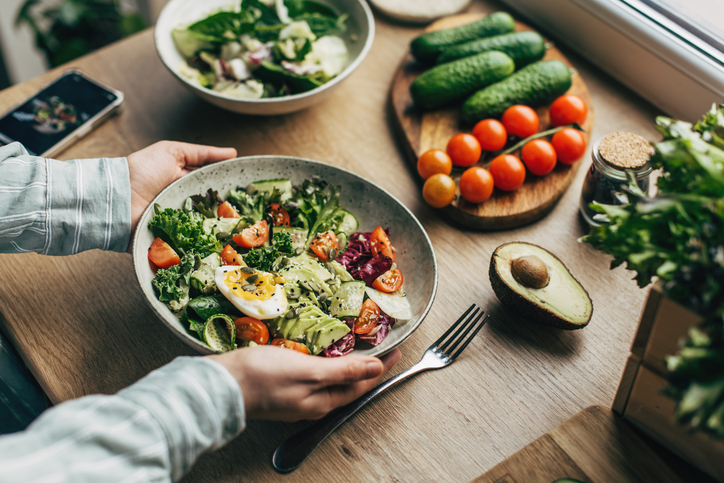Among patients with the rare autoimmune, inflammatory disorder known as primary biliary cholangitis (PBC), the immune system destroys bile ducts located inside the liver, which leads to cholestasis—the slowing down or blocking of the normal flow of bile.
PBC can have many different triggers, and food is a common one. Adopting a healthy, clean diet can help manage those food-related triggers.
Learn more about PBC signs and symptoms
What are bile and bilirubin?
Bile is secreted by the liver. It is a liquid that helps with the digestion of fat; with the absorption of certain vitamins (A, D, E, K); and with the excretion of bilirubin and excess cholesterol from the body. Bilirubin, which is formed from broken-down old red blood cells, is the pigment responsible for the yellow color of bile.
Should patients with PBC follow a special diet?
Individuals with PBC do not follow a standard diet, because patients’ nutritional needs can differ. Among individuals with PBC, symptoms, rate of disease progression, and stage of the disease can vary, which may affect a person’s dietary requirements.
Consultation with a registered dietitian or nutritionist may help to design a customized diet that is most beneficial for the needs of a patient with PBC.
There are certain modified dietary plans that may warrant consideration in some patients with PBC. Individuals who present with fluid overload, for example, may be told to follow a low-sodium diet.
Patients with end-stage or advanced liver disease may experience weight loss because of nausea and the loss of appetite.
What does a “clean” diet entail?
Because PBC is an inflammatory disorder, patients should follow a diet that helps to deal with inflammation. A Mediterranean diet is often recommended.
- Consume lots of fruits and vegetables each day.
- Eat moderate portions of lean meat.
- Choose unsaturated fats, including omega-3 fatty acids, extra virgin liver oil, salmon, and nuts.
- Select whole grains and complex carbohydrates.
- Drink coffee, which helps to decrease a person’s risk for liver cancer.
Foods to avoid
There are certain foods that are known to trigger PBC symptoms more than others.
- Avoid consuming foods with high saturated fats, such as butter and cream, and eliminate fatty meats, including beef and park, sausages, bacon, and deli meats.
- Stop consuming foods high in sugar, including sugar-sweetened drinks.
- Decrease sodium intake by cooking with salt-free seasonings.
- Totally avoid or limit alcohol consumption.
- Do not consume foods that are associated with foodborne illnesses, including raw/undercooked meat, fish, shellfish, as well as unpasteurized milk products; persons with PBC are more likely to develop bacterial or viral infections associated with certain foods.
Do patients with PBC need nutritional supplementation?
Individuals with PBC may present with deficiencies in certain fat-soluble vitamins, including A, D, E and K. Your doctor can recommend any dietary supplements that you might need to take.
Some patients with PBC may be at an increased risk for osteoporosis. In such cases, the doctor may recommend the consumption of foods that are high in calcium and vitamin D. Dietary supplements that contain vitamin D and calcium may also be recommended.
Are there any other dietary recommendations for people with PBC?
Eating smaller meals more often during the day (approximately four to five) can assist the liver in the processing of foods.
The liver is the largest gland in the human body. It stores nutrients and reduces the effects of harmful compounds.
The “liver diet,” which refers to the replenishment of nutrients and calories, can slow down the progression of PBC.

